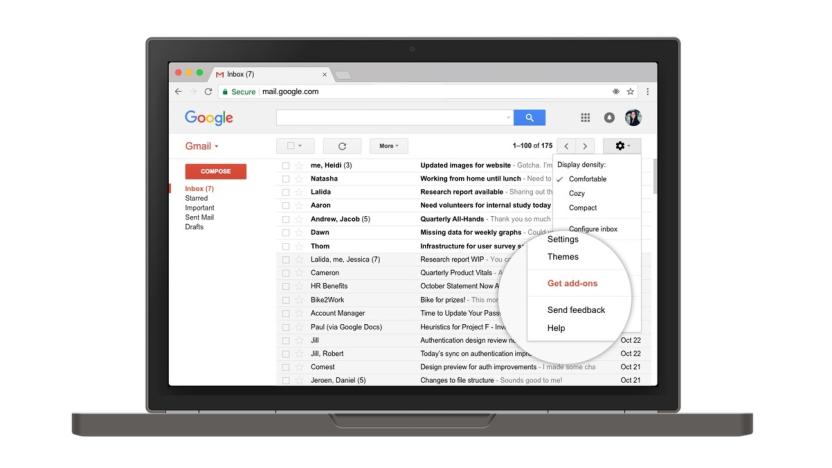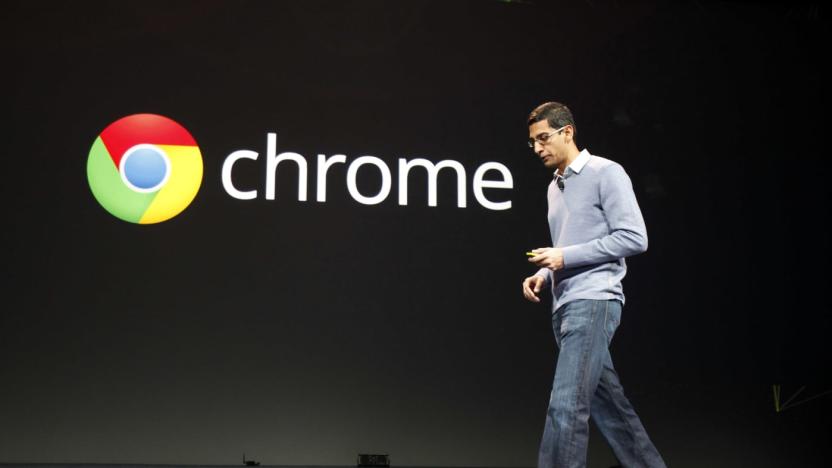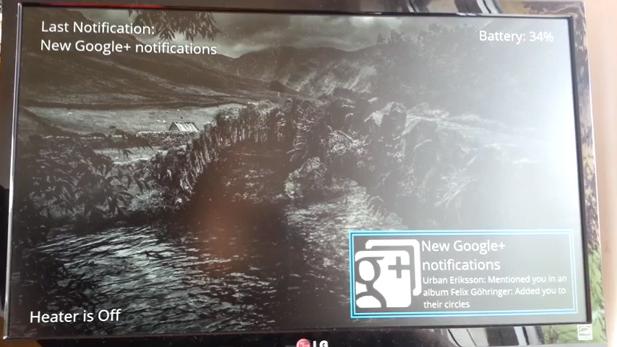plugin
Latest

Facebook expands customer service tools in Messenger
Google isn't the only one looking to improve messaging software to help businesses connect meaningfully (and profitably) with customers. Facebook just announced a new update to its own Messenger platform, which improves quick replies, expands on customer chat plugins and better customization tools.

Porsche is working on a plug-in hybrid version of the 911
Porsche has been flirting with EVs for a bit now and it looks like the the famed 911 coupe might be going partially electric. CEO Oliver Bloom recently told Automotive News that a plug-in hybrid version of the car will go on sale near 2023, roughly four years after the redesigned gas version hits the market. The publication reports that the decision to hybridize the coupe isn't final, but that Bloom is pushing for it regardless. "It will be very important for the 911 to have a plug-in hybrid," he said.

Gmail's third-party add-ons are ready to make short work of your inbox
In March, Google announced that it would soon internalize all the third-party Gmail add-ons. Previously, users had to install the plugins in each environment, like Chrome or non-Gsuite apps. Today, they are available within Gmail and, once installed, take effect on every device where the account is accessed.

DJI pulls drone app plugins that swiped too much user data
DJI's efforts to improve drone security go well beyond offering bug bounties and requiring updates. The company has rolled out updates to its Go and Go 4 mobile apps in order to pull add-ons that collect too much of your data. The main culprit is JPush, a third-party extension DJI implemented to send notifications when you finish uploading videos to the SkyPixel sharing service. It's supposed to help you move on to other tasks while your video goes to the cloud, but DJI has learned that it's collecting unnecessary info without asking, including the list of apps installed on Android devices. The company says it doesn't approve of this practice any more than you do, and it's creating its own status system as a replacement.

Plex's new Kodi plugin lets you enjoy the best of both worlds
If you've dabbled with building your own media center, it's likely that you will have encountered Plex or Kodi. Both started life as offshoots of the famed XBMC software, but over time their propositions have diverged, with Plex embracing subscriptions and Kodi remaining open-source. In the past, that meant you'd pick the project that would best organize your media collection or utilize a third-party service that combined the two, but Plex has decided to embrace its streaming counterpart by launching an official Kodi plugin.

Firefox will leave Flash off by default in 2017
Add Mozilla to the ranks of web browser developers giving Flash the boot. While it previously blocked Flash over security issues, it's phasing out regular use of Adobe's often-criticized plugin, starting with one of its next major releases. As of August, Firefox will block some Flash content that's "not essential to the user experience." And in 2017, it'll leave Flash off by default -- much like what other companies are doing, you'll have to click to activate any Flash-only material.

Chrome will make Flash player a last resort as soon as fall
We've come a long, long way from the time when Google was praising Adobe Flash as if it were a cornerstone of the internet. The internet firm has quietly proposed an "HTML5 by Default" initiative for Chrome that would make Flash more of an if-you-must backup than a must-have. The web browser would pick the HTML5 web standard for content when given the choice -- when it isn't an option, it would ask you to activate Flash. It'd skip that activation prompt for the 10 most popular sites using Flash (currently including YouTube, Facebook and Twitch), but only for a year. You'd first see HTML5 by Default in the open source Chromium browser in the fourth quarter of this year, with regular Chrome likely following soon afterward.

Skype nixes plug-in requirement for web-based chats
Skype for Web offers a handy way to bring your chats and calls to your browser. However, to us it on the web, you had to install a plug-in or extension before you could make audio or video calls. As of today, those extras are no longer a requirement, making good on a promise the company made back in 2014. With the Microsoft Edge browser, Skype for Web won't make you install a plug-in to communicate via audio or video. And yes, group chats are included as well.

WordPress blogs will soon support Facebook's Instant Articles
If you turn to Facebook for your daily news update, you may have come across Instant Articles. A small number of publishers are able to serve up news articles quickly for mobile devices right now, but from April 12th, the technology will be open to anyone --- including bloggers. In a bid to get communities on board, Facebook has teamed up with Automattic, the company behind the popular publishing software WordPress, to make it easy for writers all over the world to serve pages up to 10 times faster than they could before.

Volvo's first fully electric car will arrive in 2019
Volvo's been bullish about self-driving vehicles, but it's much more coy when it comes to electric cars. The company's latest XC90 has a hybrid edition, and there's an existing V60 plug-in, but nothing fully electric. Finally, the Swedish auto-maker is ready to go all in, confirming an all-electric vehicle will go on sale in 2019, plus plans to offer hybrid versions of every car in its range, alongside a new "series 40" range of smaller electrified cars. That's still quite a wait for the full EV, and the hybrids might not show up until 2017, but as the Wall Street Journal suggests, Volvo might have been spurred on to make the announcement by the recent VW scandal around diesel engines.

Google Drive syncs files directly from Windows Office apps
Google already added tools that help Drive play nice with Office files, and now it's offering easy access from inside Microsoft's apps. With a new plug-in, you can open files for Word, Excel and PowerPoint from Drive. When the time comes, you'll be able to save them in Google's cloud-based repository, too. It seems simple enough to use, and it's sure to come in handy for folks who prefer Google's storage option over Microsoft's, but still use Office to get work done. For now, the add-on works for Office on Windows machines, and there isn't any mention of when or if we can expect the same tool to arrive for the productivity suite for Mac.

Facebook security lead wants Adobe to say when it's killing Flash
To put it mildly, Adobe's Flash plugin has fallen from grace in recent years. BlackBerry, Google and other companies once thought it was crucial to the web, but you'll now find many of these outfits going out of their way to avoid and contain Flash in the names of both security and promoting true standards. Need further proof that it's a pariah? Just ask Facebook's new security chief, Alex Stamos. He's calling on Adobe to not only choose an "end-of-life date" for Flash, but to enable web browser "killbits" that shut it off for everyone at once. That's the only way to "disentangle the dependencies" and get everyone to move on to more secure technology like HTML5, he argues.

The SAFE project teaches computers to understand your musical vocab
The vocabulary we use to describe music can be tough enough for a human to grok (really, what does it mean when a guitar riff is "crunchy"?) but a team of tinkerers from Birmingham City University aren't interested in helping people understand that language. Nope -- instead, they've cooked up a way to teach your computer what you mean when you throw around words like "bright" or "fuzzy" or, yes, "crunchy" with a program they call the SAFE Project.

MiniLock browser plugin promises easy encryption with drag-and-drop security
A coder/activist is trying to walk a fine line with his encryption program called MiniLock, according to Wired. On the one hand, Nadim Kobeissi has developed a simple drag-and-drop interface for the browser plugin to make it accessible to all. But its public-key encryption backbone also needs to satisfy the vocal cryptographic community by being robust enough to handle any attack, even from experienced hackers (like the NSA). Judging by skeptical comments on Reddit, the latter aim will be daunting, particularly since his last effort (Cryptocat) wasn't well regarded. Nevertheless, Kobeissi will introduce an experimental beta of the new program at the HOPE X hacker conference later this month in order to have it poked and prodded by that community. As for the interface, he told Wired that "it's super simple, approachable, and it's almost impossible to be confused by it." If he manages to run the gauntlet at HOPE, MiniLock will eventually be released as a free browser plugin so that even your dear old gran can protect the family brownie recipe.

Google Chrome gets one-click video chats, no download required
It used you be that if you wanted to round up some chums on a Google+ video hangout in Chrome to figure out how Sherlock really faked his death, you all had to download and install a plugin first. 'Twas hardly a dealbreaker for most, but the process was just annoying enough to keep some people from bothering. Thankfully, those days will soon be over -- Google has just confirmed that you'll no longer need to install anything to initiate a video chat in Chrome. Alas, not all of you will be able to join the streamlined fun immediately though: those of you using Dev Channel and Canary builds of Chrome can claim the feature for yourselves now, but the rest of us will have to wait a few weeks for the change to hit our more stable builds.

Google's new Outlook plugin lets you start video Hangouts with coworkers
If you spend your work day in front of a PC, there's a good chance that you still use Outlook for much of your email and scheduling. However, Google apps also play an important role these days -- what if you want to start a Hangouts video chat with your office buddies? As of today, it's easy. Google has released a Hangouts plugin for Outlook on Windows that lets you start or schedule video calls with fellow Outlook users inside your company. Your employer will normally have to use Google Apps for Business for this to fly, although the plugin also lets firms with Chromeboxes start chats with others that haven't hopped on the Google Apps bandwagon. It's a small piece of software, but it could make a big difference if you regularly have to juggle Google and Microsoft tools while you're on the clock.

This Android add-on lets you multitask with your Chromecast
There are already quite a few Chromecast-savvy apps out there, but João Dias' newly completed AutoCast may be one of the most flexible. The Tasker add-on for Android lets you send a wide range of content to Google's media stick in your choice of layout, including multiple things at once -- you can get notifications while you're watching video, or play music while browsing video. You can also create custom home screens that show useful info like battery levels or weather, and it's possible for multiple users to share control over a single Chromecast app, such as an image editor. AutoCast won't address every possible function you might want, but it covers a surprising amount of ground by itself.

Skype's web-based version is now available worldwide
You no longer have to live in one of a few fortunate countries to make a Skype call while checking your Outlook.com email: As of today, Skype for Outlook.com is available worldwide. All you need now is to download a browser plugin and link your Skype account. The global release comes alongside improved software support, too. PC users can now participate in HD video chats, while Mac users get a Safari plugin. If you're heavily invested in Microsoft's internet services, everything you need to get started is at the source link.

Google Glass gets unofficial WordPress support
Google Glass may never be able to give you X-ray vision, but its list of supported features continues to grow. PR firm, Weber Shandwick, has released an unofficial plugin for the futuristic eyewear that allows owners to publish content to any WordPress-hosted blog with simple verbal commands. The lucky few with a headset of their own can snap a photo or video, dictate an associated caption and upload their entry, all in less than a minute. Posting long-form content, like your mother-in-law's buffalo chicken dip recipe, is also possible -- but there's a learning curve. Weber Shandwick's SVP of technology innovation, Ozzy Farman, told us that Google's built-in voice-to-text functionality takes a bit of getting used to.

Skype for Outlook.com preview now available in the US
Americans waiting for the Skype for Outlook.com preview can stop twiddling their thumbs -- the test release is now available in the US, complementing existing access in Brazil, Canada, France, Germany and the UK. As in other countries, stateside users with merged Outlook.com and Skype accounts just have to install a plugin for Chrome, Firefox or Internet Explorer to make calls while checking email. Those in other regions will have to sit tight, however; Microsoft only promises worldwide access to Skype for Outlook.com sometime in the "near future."









